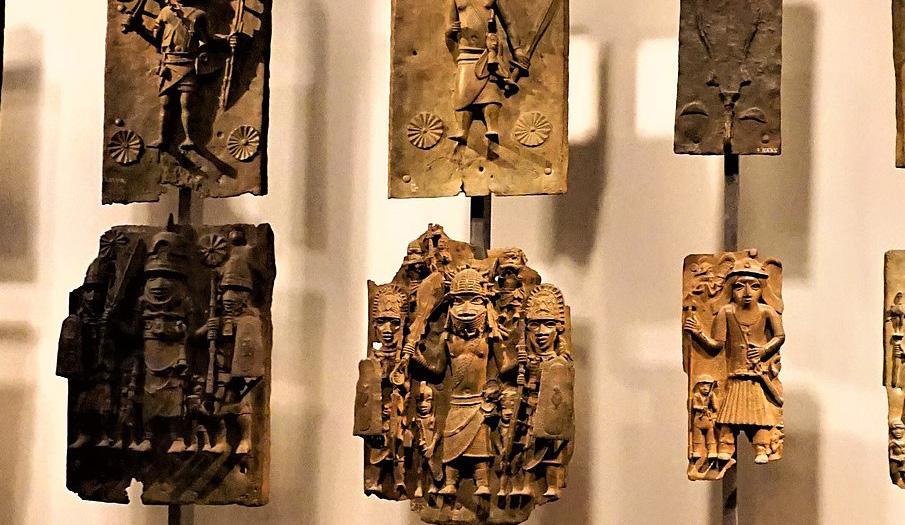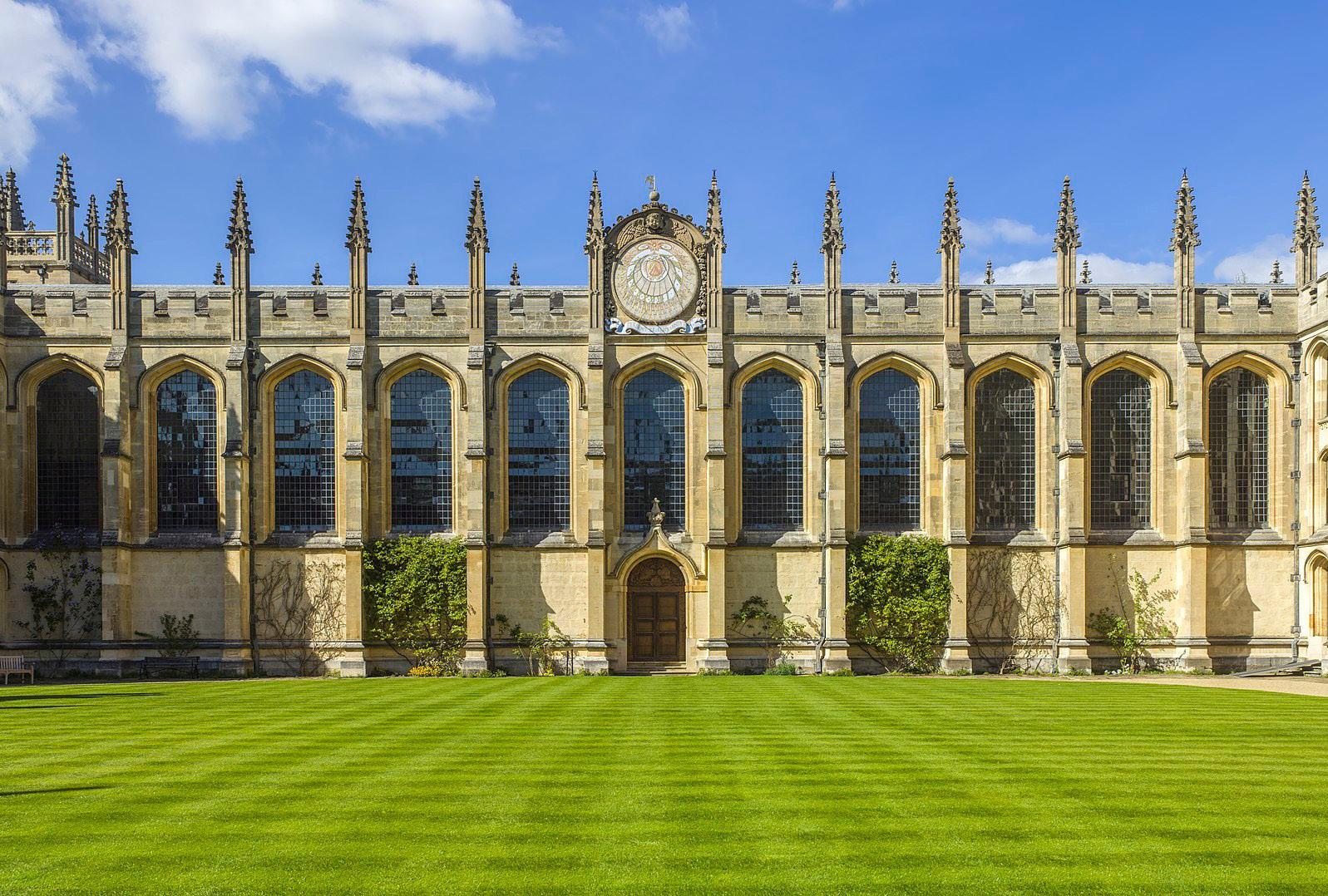
6 minute read
All Souls’ Professor of Criminology’s principles recommended for Canadian police reform
Alexandra Hedström-Blake reports.
An Oxford professor’s policing principles have recently been recommended as a model for reform by Canada’s Mass Casualty Commission’s final report following a public inquiry into the Nova Scotia mass shooting and the response of police on the ground.
Advertisement
The report, which calls for an end to the organisation of law enforcement around a core set of Victorian principles established in 1829 by Sir Robert Peel, as well as the introduction of a new and revised understanding of its roles and responsibilities, centres itself around the work of Ian Loader, a Fellow at All Souls and Professor of Criminology at the University of Oxford. When asked why he believed Peelian principles have previously been so closely held on to, despite having evolved into what Loader himself described as “ineffective cliches”, he told Cherwell that “the police like the Peelian principles because they make them feel good about the job they do and their place in society, without exercising any effective regulatory control over police strategy or behaviour.
“As such, the original principles operate mainly as a self-legitimation or branding device, not as a critical yardstick for public legitimacy. For this reason, they are not a good platform on which to locate discussion of the police mission or regain public trust.”
Having served as a contributing voice on expert panels during the inquiry, the recommendation of six of his alternative principles is one of 130 published in the final report on the shooting. Emphasising the importance of resource integration, Loader highlighted the importance of pursuing public safety initiatives “with the approval of and in collaboration with the public and other agencies”.
The initiatives should, according to Loader’s principles, be carried out in a way expressly designed to build “social cohesion and solidarity” while the police themselves remain at all times “democratically responsive to the people
Oxford University told not to “reward slavery twice” by returning the Benin Bronzes
The University of Oxford has been warned by campaigners that repatriating the Benin Bronzes to Nigeria is not only “morally indefensible”, but would “reward slavery twice”.
The university is currently awaiting the Charity Commission to sign off its proposals to return the artefacts to Nigeria; however, the process is being delayed.
Oxford’s legal team, which has been pushing for slavery reparations, has urged the university to use this delay to discard its plans. Lawyers argue that giving back the Bronzes to the descendants of the African slave-trading society, which created the sculptures using wealth connected to the trade, would be equivalent to “rewarding” slavery by returning its gains.
The Benin Bronzes were made for the royals in the Kingdom of Benin (now modern day Edo State, Nigeria) over several centuries. However these artefacts, along with several others, were looted by British troops during an attack on the city of Benin in 1897.
Nonetheless, controversy stems as the Kingdom of Benin was heavily involved with the slave trade, using its profts to produce the treasures.
Deadria Farmer-Paellmann, founder of the Restitution Study Group (RSG) which campaigns for reparative justice for descendants of the slave trade in the US, has urged Oxford University’s leadership to “immediately suspend your plans to repatriate these objects to Nigeria”. She adds: “It is morally indefensible to make such a determination against the express wishes of those of us in the UK, the US and the Commonwealth, whose ancestors literally gave their lives so that the Bronzes could be created in the frst place.”

Additionally, Oxford’s Regius professor of moral theology agrees, communicating: “Fashioned from material used as currency in slave-trading, the Benin Bronzes adorned a society that practised human sacrifce.” they serve” as well as the law.
Both Oxford and Cambridge universities felt that it was their “moral obligation” to return hundreds of artefacts which flled their museums. They both pledged in July last year that they would see this through.

Cambridge’s proposal was approved in December, yet Oxford is still waiting for a conclusion to be reached. It is understood that there is some debate over the proposal as the regulator wants to ensure that the decision made will have no adverse effects on the university. Currently, the commission is waiting for Oxford to resubmit its defences for repatriation.
In Oxford, the confict over repatriation continues.
Taking place between the 18th and 19th April 2020, the Nova Scotia attack ultimately claimed the lives of 22 people, including a pregnant woman, when a 51-year-old driving a replica RCMP patrol car opened fire.
Considered the worst mass shooting in Canadian history, commissioners found that an inadequate response by the RCMP had caused families and communities affected by events to have “questioned their former trust in the police” as issues of evidence handling and a failure to quickly issue public alerts became clear.
Despite the extent of the tragedy, Loader remains optimistic that public trust in the police force is something that can be rebuilt, but that the key ultimately lies in “admitting mistakes and being open to an honest, difficult and inclusive conversation with affected individuals’ communities”.
These dialogues would, according to Loader, need to concentrate particularly on “what went wrong, and how things could be done better in the future,” while balanced by a commitment “not to act as if the police own all the answers to what makes communities safe”.
Raising the issue of training, Loader has remained in favour of replacing the Canadian RCMP’s 26-week training program with a three-year program structured similarly to that of a university degree and described short-term police education as “becoming kind of untenable”. When asked about the extent to which he considered the changes recommended in Canada to be equally appropriate to policing efforts in the United Kingdom, Loader stated that “while it is important to be sensitive to differences in context [...] there is sufficient family resemblance between the UK and Canada to think so”, citing “the troubled history of RCMP relations with first nations communities” as an example.
Loader told Cherwell: “The principles were in fact first developed in the context of a Commission I was on in the UK a decade ago [and are] intended as a way of thinking about what good policing.”
Zoe Abereoje
Most people learn in nursery a key rule; give back what doesn’t belong to you. It was poor of me to think a dispute spanning continents could be resolved in such a manner. In what initially seemed like a simple case of British institutions like Oxford returning objects deemed to be spoils of colonisation to their rightful owner has now become a little bit more complicated.
Given that the former Benin Kingdom now exists within the state of Nigeria, it is easy to understand why the Nigerian government has always petitioned the UK to return the valuable artefacts. If the fact that the bronzes did not belong to the UK was not enough to sway the UK to return them, the fact that the UK continuing to keep them would be a deliberate attempt to keep Nigerian people from accessing their cultural and historical objects has been enough to push the UK into taking action. For as long as the bronzes continue to sit in museums and collections in the UK, Nigerian culture is being held captive in England. Forcing Nigerians who want to see the bronzes to travel to a different country to fnd their own culture.
Unfortunately, while the sentiment of this argument is one I agree with, complications arise when questions about who would own or hold these artefacts are asked. The descendants of the Kingdom of Benin being the recipients seems a fair enough claim on paper but the Restitution Study Group (RSG) has made this complicated.
The RSG’s argument that the actions of the historical Benin Kingdom nullify the imperative for repatriation is one I currently disagree with. The RSG claims that returning the items profts slavery twice. I’ll concede that my knowledge of the human rights record of the Benin Kingdom in the 1800s is non-existent, however it seems that the RSG’s argument appears to simplify history, a history which is likely extremely complicated, especially since the Benin Kingdom had existed since the 1200s. The Benin bronzes were taken by the British in 1897. In the 120 years since then historical tensions between ethnic groups and kingdoms have changed, and holding current ethnic group members away from their own history based on the actions of their ancestors seems unfair and seems to emulate the actions of the colonising British forces who employed their own sense of justice on Benin back in 1897 when their items were stolen in a form of repatriating the losses for the confict.
While I’m sure my opinion could change on the Benin Kingdom, I still fundamentally do not think this should halt the return of the bronzes to at least its modern home country if not its originating kingdom. If the RSG thinks that the Kingdom of Benin should not receive the items, why not put them in a neutral national museum so all Nigerian people can see them? If we want to ensure that justice is served in the matter of the bronzes, why not just ask the descendants of the people enslaved by the Kingdom of Benin?









